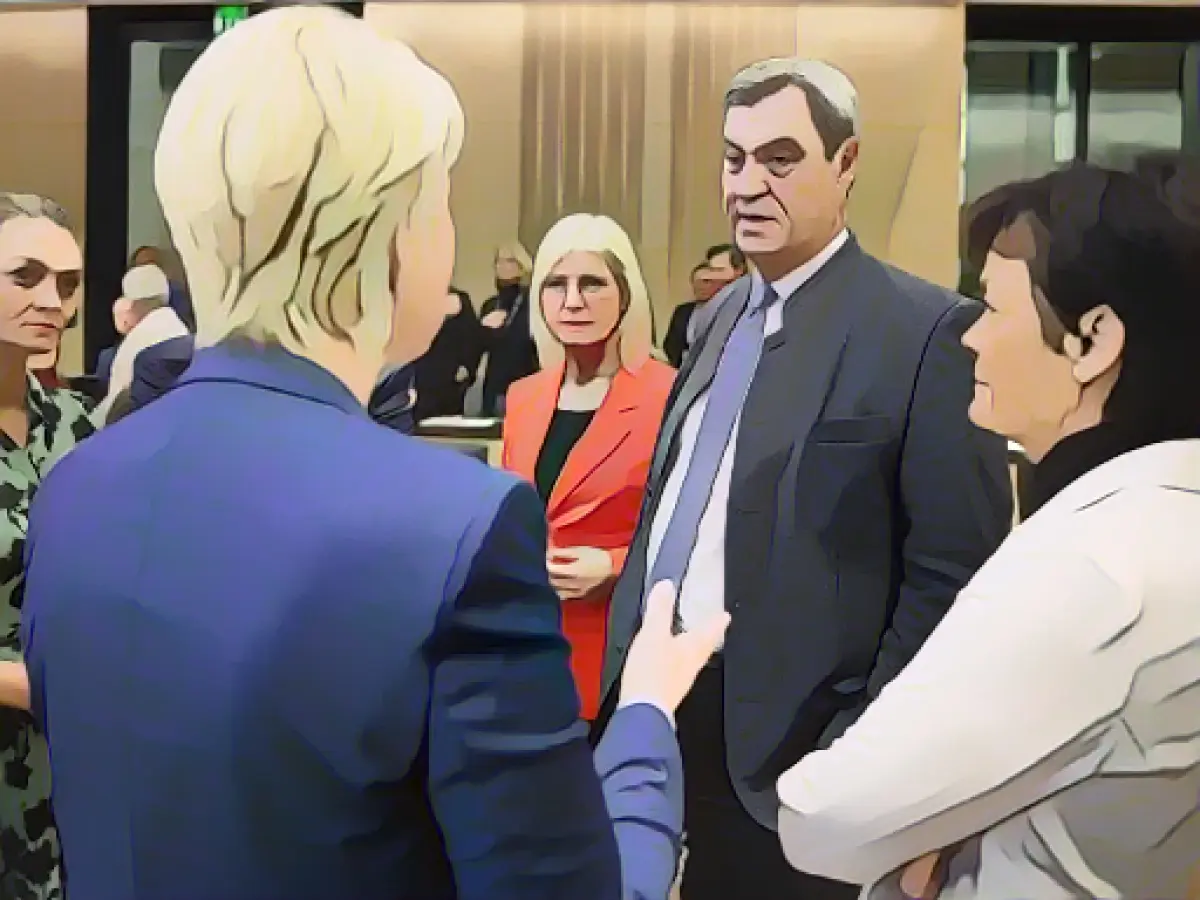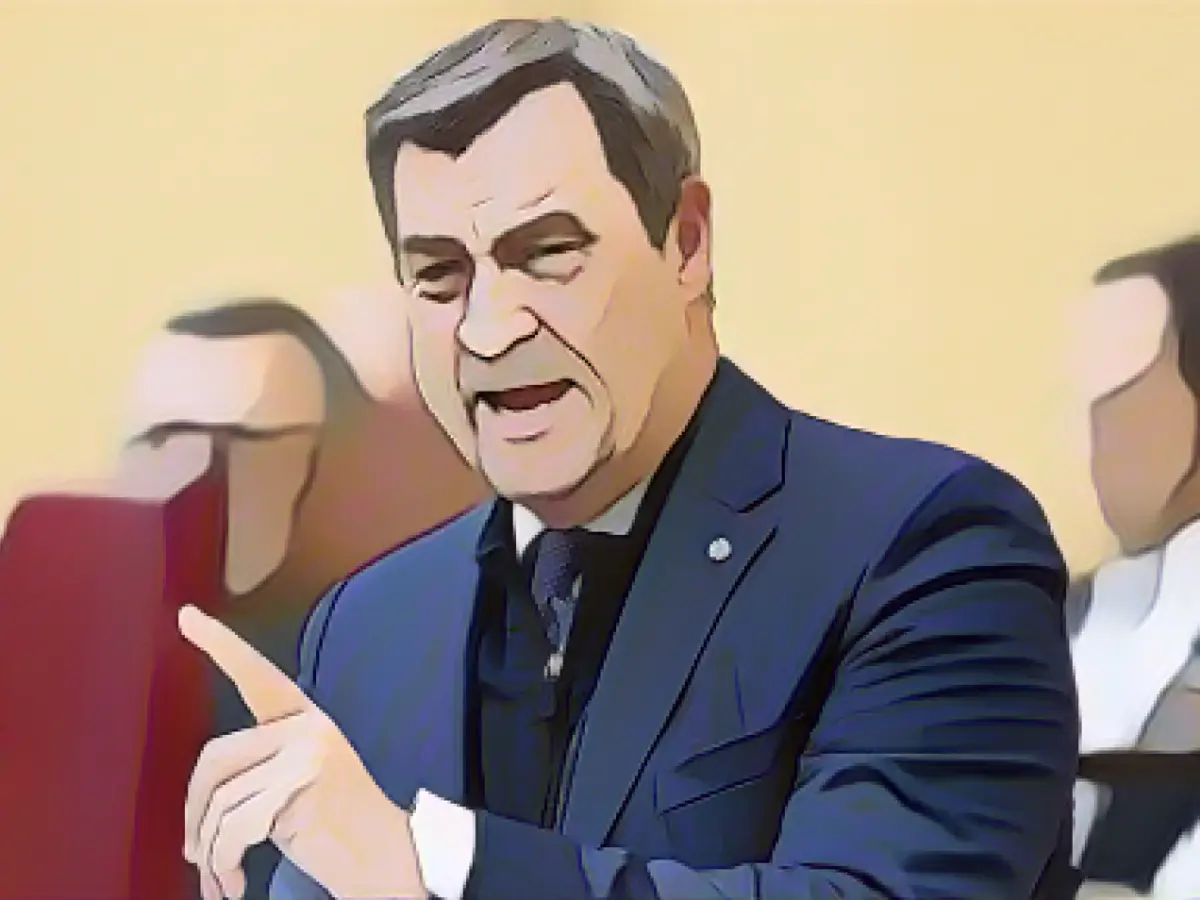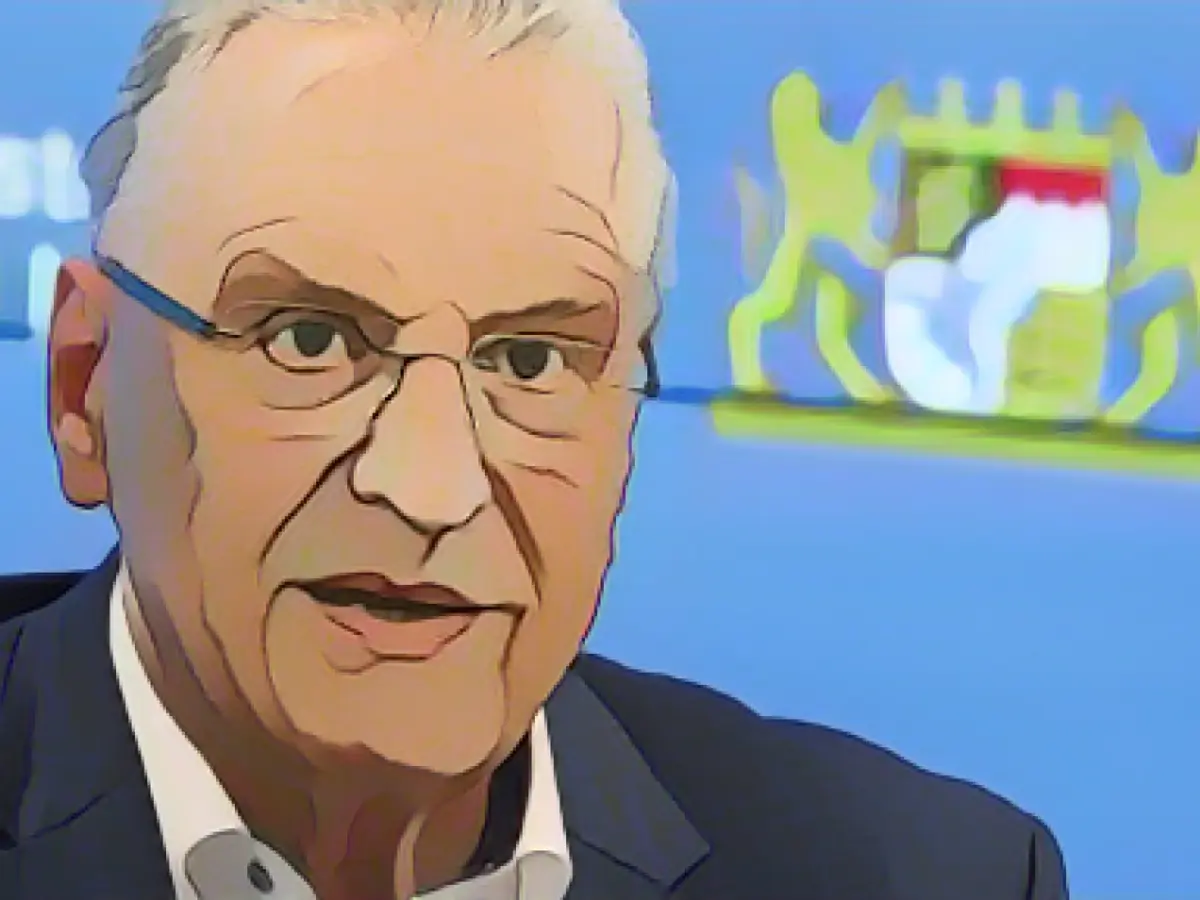Söder: Federal Government's Capability in Question Due to Lack of Plan and Leadership
In light of the turmoil surrounding budgetary policy after the Karlsruhe ruling, CSU leader Markus Söder voiced concern over the traffic light coalition's ability to govern effectively. "The traffic light coalition is completely headless and without a plan," Söder declared during a CSU delegates' meeting in Nuremberg. His remarks came ahead of the party's decision on candidate lists for the upcoming election.
Söder claimed that Germany's federal government represented a government that was merely "staggering along" and that it remained uncertain if it could recover and maintain stability in governance. The budget crisis was becoming increasingly apparent, he argued, questioning whether the coalition could govern successfully beyond this hurdle.
The Bavarian Minister President criticized the current situation as "an SOS spark of complete helplessness", deeming proposals for savings insufficient. Instead, a fundamental reorientation of policy, such as energy policy, was required.
Regarding the impending expiration of the state gas and electricity price brakes at year's end, Söder warned of the resulting uncertainty and subsequent increase in electricity prices for both citizens and businesses. He condemned the idea of merely subsidizing electricity prices, emphasizing the importance of adopting a new energy policy, which would include nuclear energy activation, among other changes.
Despite the forthcoming party elections, Söder expressed his concern regarding the direction of the federal government, stating, "The traffic light coalition's lack of plan and leadership is becoming glaringly apparent in the budgetary policy chaos."
Budgetary Policy
Germany's budgetary policy faces several intricate challenges. The debt brake, a constitutional provision that outlines state revenue and expenditure, has resulted in a €25 billion deficit in the 2025 budget. The political differences among coalition parties regarding public debt are proving difficult to reconcile.
Energy Policy
Germany's nuclear phase-out, which has led to increased reliance on coal and higher carbon emissions, and the focus on renewable energy sources flourishing in its place, are contentious issues in energy policy. Bavaria's government, headed by the CSU, has delayed the state's climate neutrality target from 2040 to 2045, resulting in criticism from the public and opposition lawmakers.
Karlsruhe Ruling
The Karlsruhe ruling, which may be influencing Söder's comments, involves the Federal Constitutional Court's judgments on various energy and environmental policies. However, no explicit reference to the ruling was made in the original sources.
In conclusion, the German federal government is grappling with complex budgetary and energy policy challenges. The differing views on public finances and climate initiatives among coalition parties complicate the adoption of a new budget and energy policy, respectively. The ongoing debates and uncertainties suggest a period of significant change ahead.








